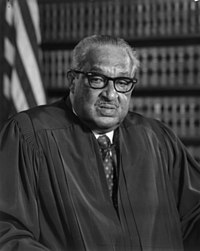Washington v. Confederated Bands and Tribes of the Yakima Indian Nation
Washington v. Confederated Bands and Tribes of the Yakima Indian Nation, 439 U.S. 463 (1979), was a case in which the Supreme Court of the United States held that the State of Washington's imposition of partial jurisdiction over certain actions on an Indian reservation, when not requested by the tribe, was valid under Public Law 280.
[fn 3] The tribe did not consent to the state assuming criminal jurisdiction, and objected to being subject to the eight listed exceptions.
After the original three judge panel heard oral arguments, the Court of Appeals decided sua sponte to hear the case en banc, on the limited question of whether the state could assume partial jurisdiction.
The court found that there was no prohibition on the state assuming partial jurisdiction and referred the remainder of the case to the original three-judge panel.
[1][6] The panel of the Court of Appeals found that the "checkerboard jurisdictional system"[1] violated the Equal Protection Clause of the Fourteenth Amendment.
[1] Finally, the tribe argued that the "checkerboard"[1] violated the Equal Protection Clause of the Fourteenth Amendment, claiming that the classifications in Chapter 36 were racial ones and as such, suspect under McLaughlin v. Florida, 379 U.S. 184 (1964).
He stated that it was clear both from the legislative record and cited Bryan v. Itasca County, 426 U.S. 373 (1976) in support but then pointed out that the tribe's argument failed based on the reading of the law.
Stewart noted that in dealing with Indian tribes that the federal government was able to enact "legislation that might otherwise be constitutionally offensive," citing Morton v. Mancari, 417 U.S. 535 (1974).
Marshall noted that for over 140 years, the Supreme Court had decided that any statutory construction must be resolved in favor of the Indian tribe.

